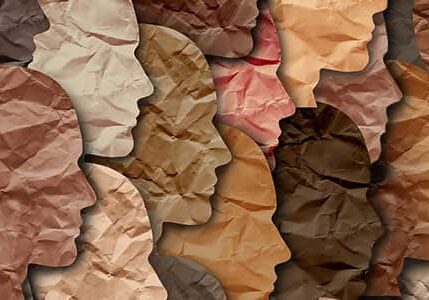Understanding Education as a Human Right
Updated: July 11, 2022
Published: December 10, 2021

December 10 is Human Rights Day and, therefore, an opportunity to reflect on the comparatively recent idea that human beings have unalienable rights. Part of this reflection is the idea that education is one of those rights, something expressed in article 26 of the United Nations Declaration of Human Rights, adopted in 1948.
Enlightenment notions of rights were that they are natural and God-given. The 1776 Declaration of Independence influenced universalist assumptions that characterised the American and French revolutions. The Enlightenment idea that, as Thomas Jefferson put it, “all men are born equal” is at the core of modern conceptions of democracy.
However, human beings are not born equal; they are born on a dramatically uneven playing field and many have to struggle to obtain equity. These rights that the Founding Fathers spoke of were not actually as universal as claimed: they were for some and not others, privileging white men while ignoring the ruthless oppression of people of colour, women and first nations inhabitants of colonised countries. Today, if we are going to present students with both sides of the story, the teaching of the Enlightenment can no longer only be about the development of science and democracy; it must tell the other side of the story: slavery, exploitation and imperialism.
What Post-World War II Civil rights and Decolonisation movements showed was that rights are not given at birth, they are won through hard fought social battles. It took extraordinary sacrifices, involving imprisonment and even death, before the rights of minority groups would be recognised. As the late Kenyan environmentalist Wangari Maathai said, “Human rights are not things that are put on the table for people to enjoy, these are things you fight for and then you protect.”
And the battle is not over: many rights are still not recognised or respected, be it at the national scale or, more surreptitiously, in the dark corners of human interaction where people are bullied and silenced, sometimes in the political arena, sometimes in the workplace, sometimes in the playground, sometimes at home. The Universal Declaration of Human Rights is a normative document, meaning that it points to the world as it should be, but it is not a descriptive or empirical document: it does not describe the world as it is.
What about the question of the rights to an education? The original United Nations text states that:
Everyone has the right to education. Education shall be free, at least in the elementary and fundamental stages. Elementary education shall be compulsory. […] Education shall be directed to the full development of the human personality and to the strengthening of respect for human rights and fundamental freedoms.
With hundreds of millions of children still not in school, a situation that is being made worse by Covid, repressive political and social systems that keep children and women out of school, education may be a right today, but it is very clearly not a right enjoyed by everybody.
It should be, not only access to education, access to quality education as specified in the United Nations’ Sustainable Development Goal Four, which has set ambitious goals for 2030, by which time it is hoped that children and adults will have free access to high quality education across Primary, Secondary and Tertiary systems throughout the world.
The University of the People is a remarkable example of the power to fight for this right: with over 117,000 students enrolled; 48,000 from Africa; 10,600 refugees; and 600 Afghan women studying from their homes, it is a movement that is changing lives and bringing humanity closer to experiencing the right to a quality education.
On Human Rights Day, may all of us in education make one gesture to open access, whether it be by reconsidering our admissions policies, doing what we can to open access to a class or course for a lower cost or for free, giving just that little bit of extra support to a learner who is struggling, accepting one more student to supervise or even spending a bit more time with young people in our households, helping them with their learning. Every effort counts to move us to this elusive but attainable goal.
